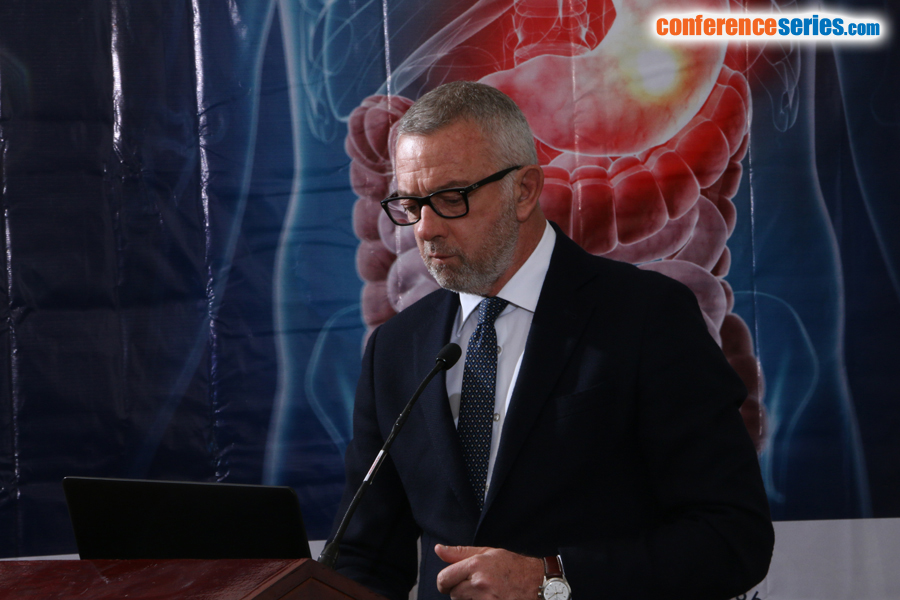
Michele Cicala
University Campus Bio Medico of Rome, Italy
Title: New classifications of GERD and impact on clinical management
Biography
Biography: Michele Cicala
Abstract
Gastro-esophageal reflux disease (GERD) is a highly prevalent condition (affecting up to 20% of subjects in Western populations) which significantly impacts the daily quality of life. GERD encompasses a heterogenous group of manifestations, with esophageal and/or extra-esophageal symptoms, ranging from complicated phenotypes such as erosive esophagitis and Barrett’s esophagus to the “non-erosive” symptomatic disease. The pathophysiology of non-erosive disease is incompletely understood. Diagnostic work-up and treatment may be challenging when patients are incorrectly classified. Beside upper endoscopy, direct reflux tests such as ambulatory esophageal pH-metry or, more recently, pH-impedance monitoring allow an accurate classification of conditions presenting with esophageal symptoms without endoscopic abnormalities. Findings of reflux testing, essentially esophageal acid exposure time and temporal association between symptoms and reflux events, are able to discriminate patients with a true non-erosive disease - displaying a pathological reflux - from patients affected by hypersensitivity to a physiological reflux and from patients affected by functional heartburn (FH), the latter defined as a functional esophageal disorder characterized by chronic heartburn unrelated to acid or nonacid reflux. In FH patients symptoms persist despite PPIs and are considered to be strongly associated with peripheral or central sensitization. This new classification, recently adopted by international groups of experts - the Rome foundation for functional GI disorders and GERD international group - might provide a better support to different therapeutical approaches. There is still a great unmet clinical need for therapeutic drugs that can be used to treat FH, and the development of novel drugs, diagnostic tests and biomarkers is eagerly awaited.

